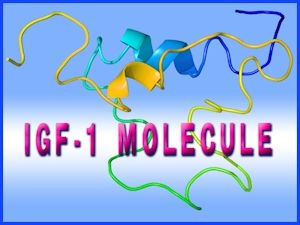Introduction
Testosterone, the primary male sex hormone, plays a pivotal role in numerous physiological processes, including muscle mass development, bone density, and the regulation of libido and mood. Variations in testosterone levels among American men can lead to a spectrum of health outcomes, from benign conditions to more severe pathologies. Recent advances in genomic research have opened new avenues for understanding how genetic factors influence testosterone levels. This article delves into a groundbreaking genome-wide association study (GWAS) that explores the genetic factors affecting testosterone levels in American men, offering insights that could revolutionize personalized healthcare and therapeutic strategies.
Methodology of the Genome-Wide Association Study
The study in question employed a GWAS approach to identify genetic variants associated with testosterone levels. Researchers collected blood samples from a diverse cohort of American men, ensuring a broad representation of ethnic and genetic backgrounds. These samples were analyzed for testosterone concentrations and subsequently genotyped to detect single nucleotide polymorphisms (SNPs). Advanced statistical methods were then used to correlate these SNPs with variations in testosterone levels, enabling the identification of significant genetic markers.
Key Findings on Genetic Variants and Testosterone
The GWAS revealed several SNPs significantly associated with testosterone levels. Notably, variants near the SHBG gene, which encodes for sex hormone-binding globulin, were found to have a strong correlation with circulating testosterone. This finding underscores the role of SHBG in regulating the bioavailability of testosterone. Additionally, SNPs in the vicinity of the JMJD1C gene, involved in histone demethylation, were also linked to testosterone levels, suggesting a novel genetic pathway influencing hormone regulation.
Implications for Health and Disease
Understanding the genetic underpinnings of testosterone levels has profound implications for men's health. For instance, individuals with genetic variants predisposing them to lower testosterone levels may be at an increased risk for conditions such as osteoporosis, depression, and metabolic syndrome. Conversely, those with genetic markers for higher testosterone might face different health challenges, including an elevated risk for prostate cancer. These insights pave the way for targeted screening and preventive measures tailored to an individual's genetic profile.
Personalized Medicine and Therapeutic Interventions
The findings from this GWAS herald a new era in personalized medicine. By identifying specific genetic markers associated with testosterone levels, healthcare providers can offer more precise interventions. For example, men identified with genetic predispositions to low testosterone might benefit from early therapeutic interventions, such as hormone replacement therapy, to mitigate associated health risks. Moreover, these genetic insights can guide the development of novel therapeutic agents designed to modulate testosterone levels more effectively and safely.
Challenges and Future Directions
Despite the promising results, the study also highlights several challenges. The complexity of genetic interactions and the influence of environmental factors on gene expression necessitate further research to fully understand the genetic architecture of testosterone regulation. Future studies should aim to include larger and more diverse cohorts to enhance the generalizability of findings. Additionally, longitudinal studies could provide insights into how genetic factors influence testosterone levels over a man's lifespan.
Conclusion
The genome-wide association study exploring the genetic factors affecting testosterone levels in American men represents a significant step forward in the field of genetic research and personalized medicine. By identifying key genetic variants and their associations with testosterone, this study offers valuable insights into the biological mechanisms governing hormone regulation. As we continue to unravel the genetic blueprint of testosterone, the potential for improving health outcomes and tailoring therapeutic interventions grows ever more promising. For American men, this research not only enhances our understanding of their health but also opens the door to a future where healthcare is more personalized, effective, and preventive.
Contact Us For A Fast And Professional Response

- 0001) Genetics and Testosterone: American Males' Predisposition and Health Implications [Last Updated On: January 30th, 2026] [Originally Added On: February 19th, 2025]
- 0002) Fueling Masculinity: Unleashing the Power of Testosterone [Last Updated On: February 25th, 2025] [Originally Added On: February 25th, 2025]
- 0003) Decoding Testosterone: Unraveling the Impact of the Master Hormone on Your Existence [Last Updated On: February 26th, 2025] [Originally Added On: February 26th, 2025]
- 0004) The Evolving Chronicle of Testosterone: A Voyage Through Time [Last Updated On: February 27th, 2025] [Originally Added On: February 27th, 2025]
- 0005) The Unexplored Power: Advantages of Optimum Testosterone Levels beyond Muscle Development [Last Updated On: February 28th, 2025] [Originally Added On: February 28th, 2025]
- 0006) Decoding the Testosterone Code: Dissecting Myths and Misconceptions [Last Updated On: February 28th, 2025] [Originally Added On: February 28th, 2025]
- 0007) Unveiling the Vital Role of Testosterone in Women's Health: A Comprehensive Overview [Last Updated On: March 1st, 2025] [Originally Added On: March 1st, 2025]
- 0008) Unraveling the Powerhouse of Vitality: The Definitive Guide to Understanding Testosterone [Last Updated On: March 1st, 2025] [Originally Added On: March 1st, 2025]
- 0009) Unlocking Male Vitality: A Dietary Approach to Elevating Testosterone Levels Naturally [Last Updated On: March 2nd, 2025] [Originally Added On: March 2nd, 2025]
- 0010) Enhancing Testosterone Production through Physical Activity: The Impact of Resistance Training and HIIT on Hormonal Health [Last Updated On: March 3rd, 2025] [Originally Added On: March 3rd, 2025]
- 0011) Understanding Testosterone's Impact on Male Confidence and Mental Health [Last Updated On: March 4th, 2025] [Originally Added On: March 4th, 2025]
- 0012) Understanding Testosterone's Role in Male Health and Strategies to Maintain Its Levels [Last Updated On: March 5th, 2025] [Originally Added On: March 5th, 2025]
- 0013) Comprehensive Guide to Testosterone: Importance, Functions, and Lifecycle in Men [Last Updated On: March 6th, 2025] [Originally Added On: March 6th, 2025]
- 0014) Optimizing Men's Health: Boost Testosterone Naturally Through Diet, Exercise, and Lifestyle Changes [Last Updated On: March 7th, 2025] [Originally Added On: March 7th, 2025]
- 0015) The Evolution of Testosterone Therapy: Innovations, Safety, and Future Potential for Men's Health [Last Updated On: March 8th, 2025] [Originally Added On: March 8th, 2025]
- 0016) Managing Testosterone Decline in Aging Men: Strategies for Vitality and Quality of Life [Last Updated On: March 9th, 2025] [Originally Added On: March 9th, 2025]
- 0017) Maximizing Masculine Vitality: The Crucial Role of Sleep in Testosterone Regulation [Last Updated On: March 12th, 2025] [Originally Added On: March 12th, 2025]
- 0018) Exploring the Horizon: The Future of Hormonal Health and Testosterone Research Trends [Last Updated On: March 13th, 2025] [Originally Added On: March 13th, 2025]
- 0019) Unraveling the Nexus of Stress, Cortisol, and Testosterone: A Guide to Hormonal Equilibrium for American Men [Last Updated On: March 13th, 2025] [Originally Added On: March 13th, 2025]
- 0020) Unleashing Athletic Potential: The Role of Testosterone in Performance Enhancement [Last Updated On: March 15th, 2025] [Originally Added On: March 15th, 2025]
- 0021) Testosterone's Impact on Mood, Memory, and Motivation in American Males [Last Updated On: March 17th, 2025] [Originally Added On: March 17th, 2025]
- 0022) Resistance Training Boosts Testosterone: A Guide for American Males [Last Updated On: March 18th, 2025] [Originally Added On: March 18th, 2025]
- 0023) Testosterone's Impact on Bone Density in American Males: Mechanisms and Management [Last Updated On: March 19th, 2025] [Originally Added On: March 19th, 2025]
- 0024) Testosterone's Crucial Role in Enhancing Immune Function in American Men [Last Updated On: March 19th, 2025] [Originally Added On: March 19th, 2025]
- 0025) Testosterone Health for American Males: Supplements, Lifestyle, and Medical Options [Last Updated On: March 19th, 2025] [Originally Added On: March 19th, 2025]
- 0026) Testosterone's Impact on Metabolism and Fat Burning in American Males [Last Updated On: March 20th, 2025] [Originally Added On: March 20th, 2025]
- 0027) Testosterone's Impact on Cardiovascular Health in American Men: Risks and Benefits [Last Updated On: March 20th, 2025] [Originally Added On: March 20th, 2025]
- 0028) Hormonal Balance in Men: Testosterone, Estrogen, and Beyond for Optimal Health [Last Updated On: March 20th, 2025] [Originally Added On: March 20th, 2025]
- 0029) Testosterone's Role in Enhancing Workplace Productivity and Drive in American Males [Last Updated On: March 21st, 2025] [Originally Added On: March 21st, 2025]
- 0030) Environmental Toxins and Their Impact on Men's Testosterone Levels: A Comprehensive Overview [Last Updated On: March 22nd, 2025] [Originally Added On: March 22nd, 2025]
- 0031) Testosterone's Role in Male Libido: Strategies to Boost Desire and Intimacy [Last Updated On: March 22nd, 2025] [Originally Added On: March 22nd, 2025]
- 0032) Testosterone's Vital Role in American Males' Cardiovascular Health and Fitness [Last Updated On: March 22nd, 2025] [Originally Added On: March 22nd, 2025]
- 0033) Low Testosterone in Men: Symptoms, Causes, and Effective Management Strategies [Last Updated On: March 22nd, 2025] [Originally Added On: March 22nd, 2025]
- 0034) Modern American Diet's Impact on Testosterone Levels and Mitigation Strategies [Last Updated On: March 22nd, 2025] [Originally Added On: March 22nd, 2025]
- 0035) Testosterone Revolution: Redefining Masculinity and Enhancing Men's Health in America [Last Updated On: March 23rd, 2025] [Originally Added On: March 23rd, 2025]
- 0036) Testosterone's Role in Muscle Recovery and Growth for American Males [Last Updated On: March 23rd, 2025] [Originally Added On: March 23rd, 2025]
- 0037) Testosterone's Impact on Cognitive Performance in American Males: A Comprehensive Analysis [Last Updated On: March 23rd, 2025] [Originally Added On: March 23rd, 2025]
- 0038) Optimizing Testosterone in American Men Through Positive Mental Strategies [Last Updated On: March 23rd, 2025] [Originally Added On: March 23rd, 2025]
- 0039) Meditation Boosts Testosterone: A Holistic Approach for American Males' Health [Last Updated On: March 23rd, 2025] [Originally Added On: March 23rd, 2025]
- 0040) Understanding Testosterone: Importance, Symptoms, and Managing Health Proactively [Last Updated On: March 24th, 2025] [Originally Added On: March 24th, 2025]
- 0041) Testosterone's Role in Sleep Quality: Strategies for American Men [Last Updated On: March 24th, 2025] [Originally Added On: March 24th, 2025]
- 0042) Understanding Testosterone: Levels, Factors, and Health Impacts for American Men [Last Updated On: March 24th, 2025] [Originally Added On: March 24th, 2025]
- 0043) Key Vitamins and Minerals Boosting Testosterone in American Males [Last Updated On: March 24th, 2025] [Originally Added On: March 24th, 2025]
- 0044) Testosterone's Impact on Body Image and Self-Esteem in American Men [Last Updated On: March 24th, 2025] [Originally Added On: March 24th, 2025]
- 0045) Boosting Testosterone: Diet, Exercise, Sleep, and Stress Management for American Men [Last Updated On: March 24th, 2025] [Originally Added On: March 24th, 2025]
- 0046) Testosterone's Impact on Mental Health in American Men: Depression, Anxiety, and Cognition [Last Updated On: March 24th, 2025] [Originally Added On: March 24th, 2025]
- 0047) Testosterone's Role in Longevity: Insights for American Males [Last Updated On: March 24th, 2025] [Originally Added On: March 24th, 2025]
- 0048) Creativity Boosts Testosterone: Music and Art's Role in Men's Health [Last Updated On: March 24th, 2025] [Originally Added On: March 24th, 2025]
- 0049) Testosterone and Chronic Diseases: Management Strategies for American Males [Last Updated On: March 24th, 2025] [Originally Added On: March 24th, 2025]
- 0050) Exploring Testosterone Replacement Therapy: Benefits, Risks, and Realities for American Males [Last Updated On: March 24th, 2025] [Originally Added On: March 24th, 2025]
- 0051) Declining Testosterone Levels in American Males: Trends, Causes, and Health Strategies [Last Updated On: March 24th, 2025] [Originally Added On: March 24th, 2025]
- 0052) Urban vs. Rural Living: Impacts on Testosterone Levels in American Males [Last Updated On: March 25th, 2025] [Originally Added On: March 25th, 2025]
- 0053) Andropause: Understanding Male Menopause and Testosterone's Role in American Men's Health [Last Updated On: March 25th, 2025] [Originally Added On: March 25th, 2025]
- 0054) Testosterone's Impact on Ambition and Success in American Males [Last Updated On: March 25th, 2025] [Originally Added On: March 25th, 2025]
- 0055) Outdoor Activities Boost Testosterone: A Natural Health Strategy for American Males [Last Updated On: March 25th, 2025] [Originally Added On: March 25th, 2025]
- 0056) Optimizing Testosterone: The Synergy of Rest and Nutrition for American Men [Last Updated On: March 26th, 2025] [Originally Added On: March 26th, 2025]
- 0057) Intermittent Fasting: Boosting Testosterone Levels in American Men [Last Updated On: March 26th, 2025] [Originally Added On: March 26th, 2025]
- 0058) Testosterone's Impact on Mental Resilience in American Men: Strategies and Insights [Last Updated On: March 26th, 2025] [Originally Added On: March 26th, 2025]
- 0059) Testosterone's Influence on Risk-Taking in American Males: Biological and Social Factors [Last Updated On: March 26th, 2025] [Originally Added On: March 26th, 2025]
- 0060) Testosterone Research Journey: From Lab to Clinic, Enhancing American Males' Health [Last Updated On: March 26th, 2025] [Originally Added On: March 26th, 2025]
- 0061) Digital Tools Revolutionize Testosterone Monitoring for American Males [Last Updated On: March 26th, 2025] [Originally Added On: March 26th, 2025]
- 0062) Testosterone's Impact on Athletic Performance: Myths, Facts, and Future Research for American Males [Last Updated On: March 26th, 2025] [Originally Added On: March 26th, 2025]
- 0063) Balancing Work and Health: Strategies for American Men to Maintain Testosterone Levels [Last Updated On: March 27th, 2025] [Originally Added On: March 27th, 2025]
- 0064) Low Testosterone: Health Condition's Economic Impact on Society and Workforce [Last Updated On: March 27th, 2025] [Originally Added On: March 27th, 2025]
- 0065) Hormonal Health and Testosterone: Vital Insights for American Men's Well-being [Last Updated On: March 27th, 2025] [Originally Added On: March 27th, 2025]
- 0066) Social Interactions Impact Testosterone Levels in American Males: A Comprehensive Study [Last Updated On: March 27th, 2025] [Originally Added On: March 27th, 2025]
- 0067) Boost Testosterone Naturally with Resistance Band Workouts for American Men [Last Updated On: March 28th, 2025] [Originally Added On: March 28th, 2025]
- 0068) Gut Health's Impact on Testosterone Levels in American Males: A Comprehensive Overview [Last Updated On: March 28th, 2025] [Originally Added On: March 28th, 2025]
- 0069) Personalized Medicine Revolutionizes Testosterone Therapy for American Males [Last Updated On: March 30th, 2025] [Originally Added On: March 30th, 2025]
- 0070) Revolutionizing Male Health: Advanced Technologies in Testosterone Optimization [Last Updated On: March 30th, 2025] [Originally Added On: March 30th, 2025]
- 0071) Testosterone's Impact on Male Skin, Hair, and Aesthetic Health Management [Last Updated On: March 31st, 2025] [Originally Added On: March 31st, 2025]
- 0072) Testosterone's Dual Impact on Immune Health in American Men: Suppression and Protection [Last Updated On: March 31st, 2025] [Originally Added On: March 31st, 2025]
- 0073) Testosterone and Body Composition: Optimizing Health for American Males [Last Updated On: April 2nd, 2025] [Originally Added On: April 2nd, 2025]
- 0074) Testosterone's Comprehensive Impact on Men's Sexual Health and Well-being [Last Updated On: April 4th, 2025] [Originally Added On: April 4th, 2025]
- 0075) Alcohol and Smoking: Impacts on Testosterone Levels in American Males [Last Updated On: April 4th, 2025] [Originally Added On: April 4th, 2025]
- 0076) Acupuncture's Role in Enhancing Testosterone Levels in American Men: A Comprehensive Overview [Last Updated On: April 5th, 2025] [Originally Added On: April 5th, 2025]
- 0077) HIIT Boosts Testosterone: Optimal Fitness Strategy for American Males [Last Updated On: April 7th, 2025] [Originally Added On: April 7th, 2025]
- 0078) Mindful Living Boosts Testosterone: Meditation, Yoga, Sleep, Nutrition, and Exercise for American Men [Last Updated On: April 9th, 2025] [Originally Added On: April 9th, 2025]
- 0079) Exploring Testosterone Boosters: Efficacy, Types, and Safe Usage for American Men [Last Updated On: April 9th, 2025] [Originally Added On: April 9th, 2025]
- 0080) Testosterone's Role in Social Dominance and Evolutionary Biology for American Males [Last Updated On: April 9th, 2025] [Originally Added On: April 9th, 2025]
















